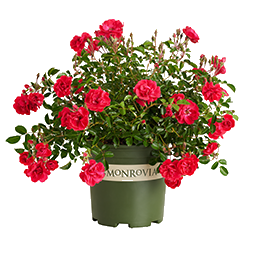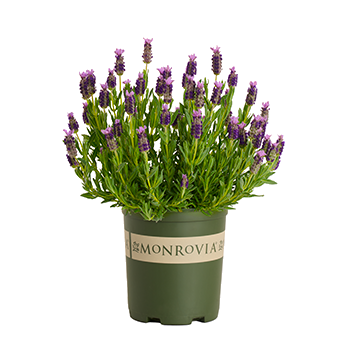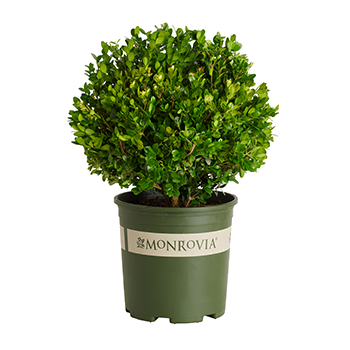You're growing in this Zip Code:
Change LocationSunsation® Japanese Barberry
Berberis thunbergii 'Monry' ; CPBR #3487
Retailers Near You
No Retailers found within 50 miles of your zipcode
Be Inspired: How to Use this Plant
| Bloom Time | Spring |
|---|---|
| Deciduous/Evergreen | Deciduous |
| Special Features | Dramatic Foliage Color, Easy Care, Ornamental Berries, Compact Form |
| Problems/Solutions | Deer Resistant, Drought Tolerant, Tolerates Urban Pollution, Road Salt Tolerant |
| Growth Rate | Slow |
| Growth Habit | Rounded |
| Patent Act | Asexual reproduction of plants protected by the Plant Patent Act is prohibited during the life of the patent. |
| Landscape Use | Barrier, Border, Hedge |
| Design Ideas | Vivid golden yellow foliage makes this a bright spot in any garden. An excellent way to spice up mixed shrub borders to stand up all season against dark evergreens. The perfect plant to make blooming seasonals literally pop out in high contrast. A perfect choice to break up long expanses of wall or fence line. Calls attention to important points in foundation planting to cover up unsightly vents and utilities front yard or back. Create a super bold yellow hedge or intermix this with closely related purple barberries for an eye popping effect. A natural for modern gardens dependent on foliage color for interest. |
| Flower Color | Yellow |
| Foliage Color | Yellow |
| Companion Plants | Boxwood (Buxus); Potentilla (Potentilla); Smoke Tree (Cotinus); Spirea (Spiraea); Weigela (Weigela) |
| Care Instructions | Thrives in average, well-drained soil; avoid poorly drained, wet sites. Water deeply, regularly during first growing season to establish an extensive root system. Once established reduce frequency; tolerates moderate drought. Apply fertilizer before new growth begins in spring. Prune annually in late winter to shape. |
| Lore | The fruit of barberries has been used in various culinary preparations. It has been pickled for use as garnish. Berries when ripe are made into jelly and added to comfits. It is the berries from which confitures d'epine vinetteis prepared, for which Rouen is famous. Barberry roots boiled in lye dye wool yellow. |
| Bloom Time | Spring |
|---|---|
| Deciduous/Evergreen | Deciduous |
| Special Features | Dramatic Foliage Color, Easy Care, Ornamental Berries, Compact Form |
| Problems/Solutions | Deer Resistant, Drought Tolerant, Tolerates Urban Pollution, Road Salt Tolerant |
| Growth Rate | Slow |
| Growth Habit | Rounded |
| Patent Act | Asexual reproduction of plants protected by the Plant Patent Act is prohibited during the life of the patent. |
| Landscape Use | Barrier, Border, Hedge |
|---|---|
| Design Ideas | Vivid golden yellow foliage makes this a bright spot in any garden. An excellent way to spice up mixed shrub borders to stand up all season against dark evergreens. The perfect plant to make blooming seasonals literally pop out in high contrast. A perfect choice to break up long expanses of wall or fence line. Calls attention to important points in foundation planting to cover up unsightly vents and utilities front yard or back. Create a super bold yellow hedge or intermix this with closely related purple barberries for an eye popping effect. A natural for modern gardens dependent on foliage color for interest. |
| Flower Color | Yellow |
| Foliage Color | Yellow |
| Companion Plants | Boxwood (Buxus); Potentilla (Potentilla); Smoke Tree (Cotinus); Spirea (Spiraea); Weigela (Weigela) |
| Care Instructions | Thrives in average, well-drained soil; avoid poorly drained, wet sites. Water deeply, regularly during first growing season to establish an extensive root system. Once established reduce frequency; tolerates moderate drought. Apply fertilizer before new growth begins in spring. Prune annually in late winter to shape. |
|---|
| Lore | The fruit of barberries has been used in various culinary preparations. It has been pickled for use as garnish. Berries when ripe are made into jelly and added to comfits. It is the berries from which confitures d'epine vinetteis prepared, for which Rouen is famous. Barberry roots boiled in lye dye wool yellow. |
|---|
Retailers Near You
No Retailers found within 50 miles of your zipcode
Retailers Near You
No Retailers found within 50 miles of your zipcode
Buy Online
We cannot currently ship this product to your zip code.
About Us
We have been pioneers and craftsmen in the art of growing plants for nearly
100 years. Since our founding in Southern California by Harry E. Rosedale, Sr.
in 1926, we have been absolutely dedicated and obsessed with quality.
We have been pioneers and craftsmen in the art of growing plants for nearly 100 years. Since our founding in Southern California by Harry E. Rosedale, Sr. in 1926, we have been absolutely dedicated and obsessed with quality.






